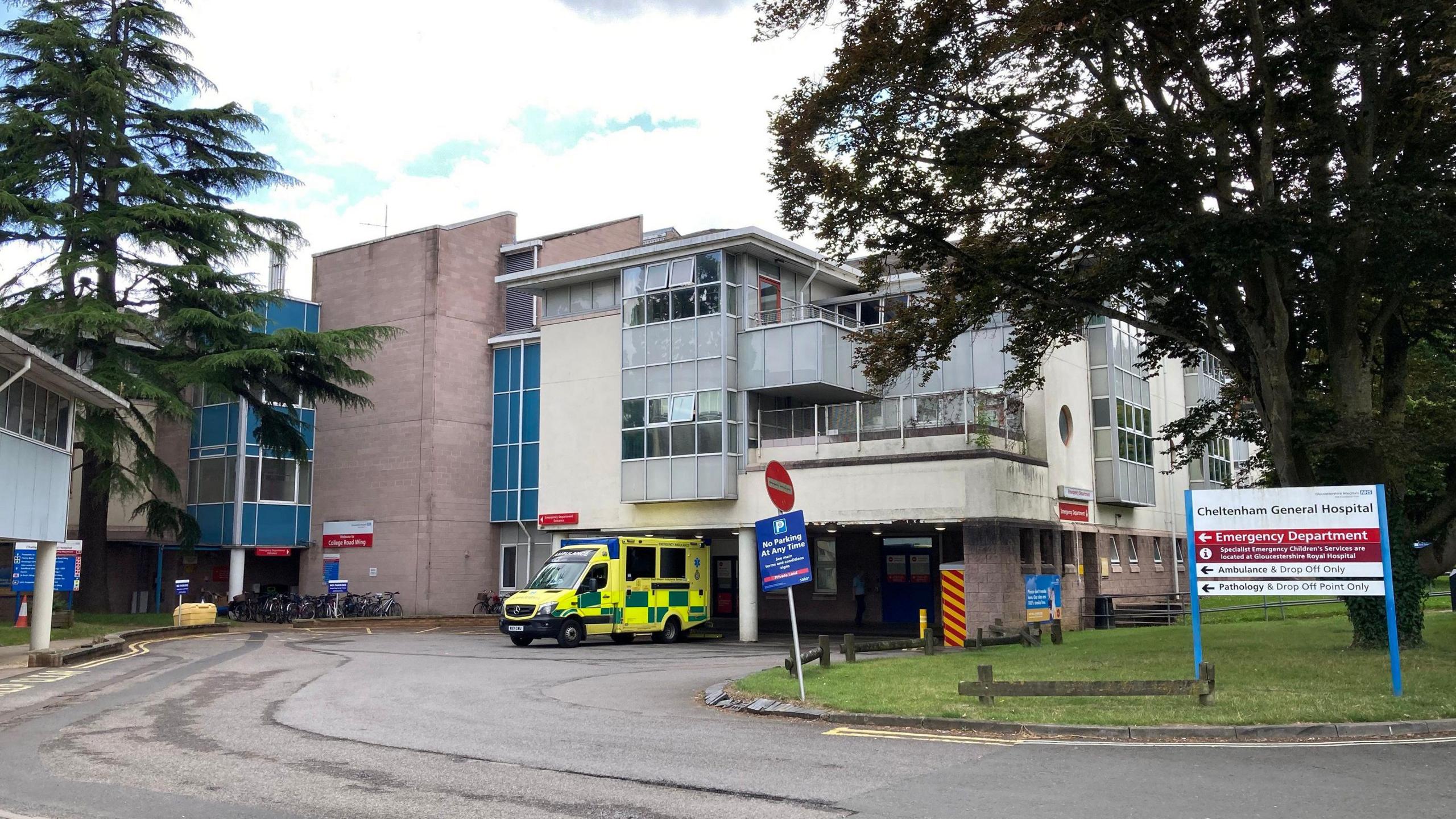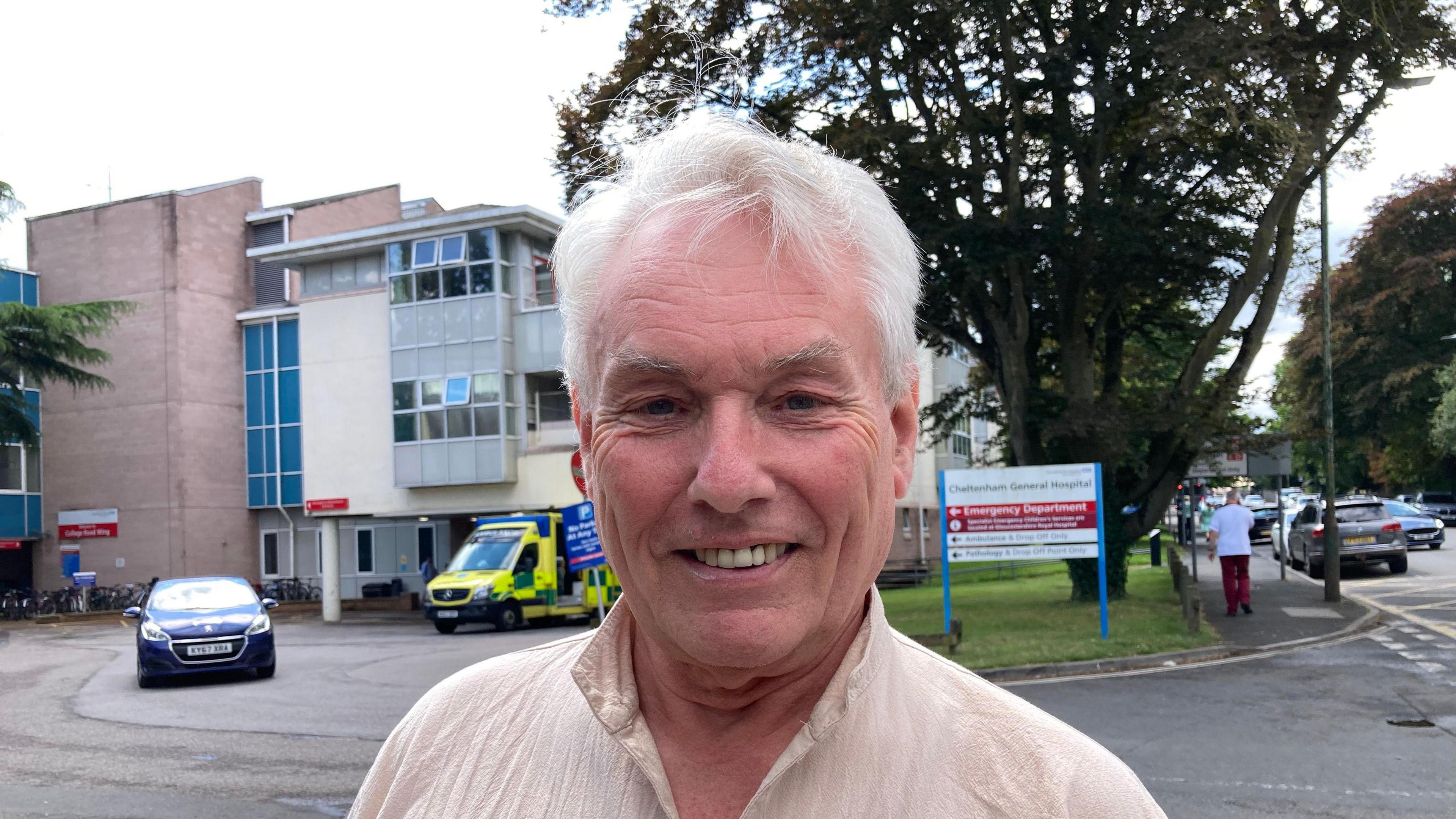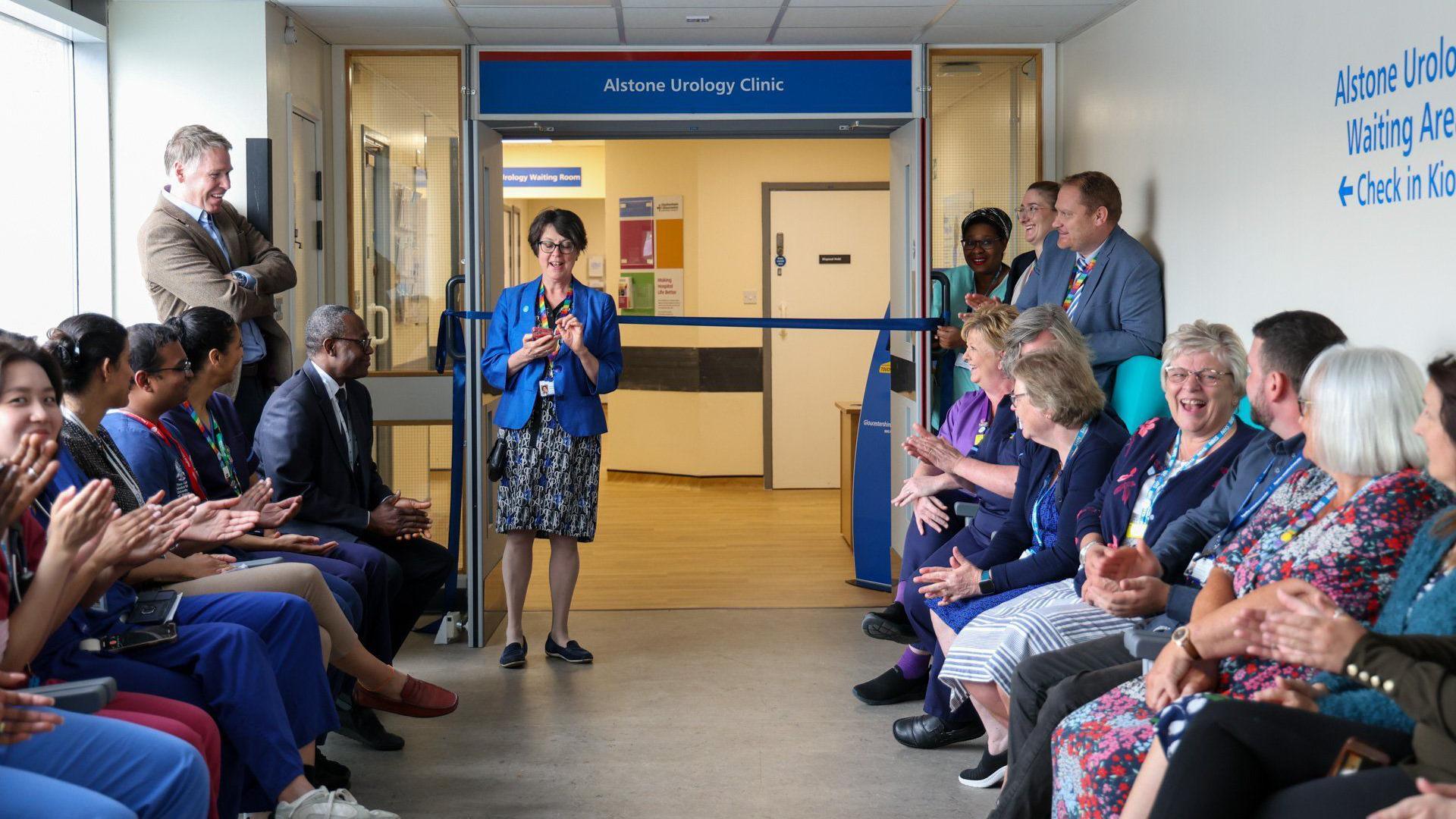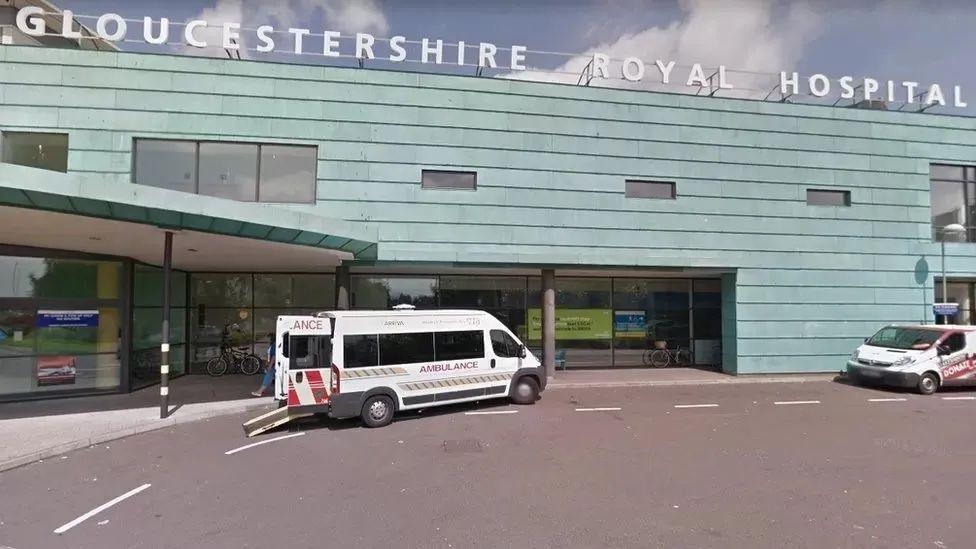A&E changes rolled out as patients feel 'betrayed'

The county's acute medical take, the process of determining whether patients require hospital admission, will also be centralised
- Published
Hospital bosses have introduced changes to the county's A&E services as some patients said they feel "betrayed".
The county's acute medical take, the process of co-ordinating admissions, has been centralised to Gloucestershire Royal Hospital, in Gloucester. On average, this will result in three less daily ambulances at Cheltenham.
Leaders of Restore Emergency At Cheltenham General Hospital (REACH) said they are "extremely concerned".
The hospitals' chief executive, Kevin McNamara, said it is about having the "right teams in the right place".
Under the changes, Cheltenham will be able to expand its urology and stroke services, and improve its same-day emergency care service, which helps patients from being admitted to hospital.
Speaking to BBC Radio Gloucestershire, Mr McNamara said it was "really important" people understand the emergency department will remain at Cheltenham hospital from 08.00 - 20.00 BST, before switching to a minor injuries unit overnight.
"The intensive care unit remains at the hospital as well, and that has been the case since 2013," he said.
'We've been betrayed'
REACH has raised concerns that only emergency patients with oncology, urology or stroke emergencies can now go to Cheltenham A&E.
"We are extremely concerned on behalf of the people in Cheltenham and the whole of North and East Gloucestershire, where Cheltenham is the nearest accident and emergency department," said Julius Marstrand.
"Losing that location for ambulances to go direct to is really serious and we’re more than disappointed.
"We actually feel as though we’ve been betrayed because this was not what the hospital trust has told us. They specifically excluded accident and emergency from that consultation."

Julius Marstrand, a campaigner from REACH, said the group is "more than disappointed" with the changes
Regarding these concerns, Mr McNamara said he "acknowledged" REACH's feelings, but stressed that the fundamentals of the emergency department were not being changed.
"If somebody turns up to the emergency department with a suspected heart attack, for example, the ideal location for that care and treatment would be in Gloucester," Mr McNamara said.
"Of course, we have services in Cheltenham that can stabilise the patient and then move them to the specialist cardiology unit at Gloucester, that is similar to the stroke arrangement in reverse.
"Those things we will put in place to make sure if people do turn up to the emergency department, but they were better cared for in Gloucester they can be stabilised and transported quickly."
The changes stem from a consultation that happened in 2020.
Get in touch
Tell us which stories we should cover in Gloucestershire
Follow BBC Gloucestershire on Facebook, external, X, external, and Instagram, external. Send your story ideas to us on email or via WhatsApp on 0800 313 4630.
Related topics
- Published20 May 2024

- Published22 May 2024
